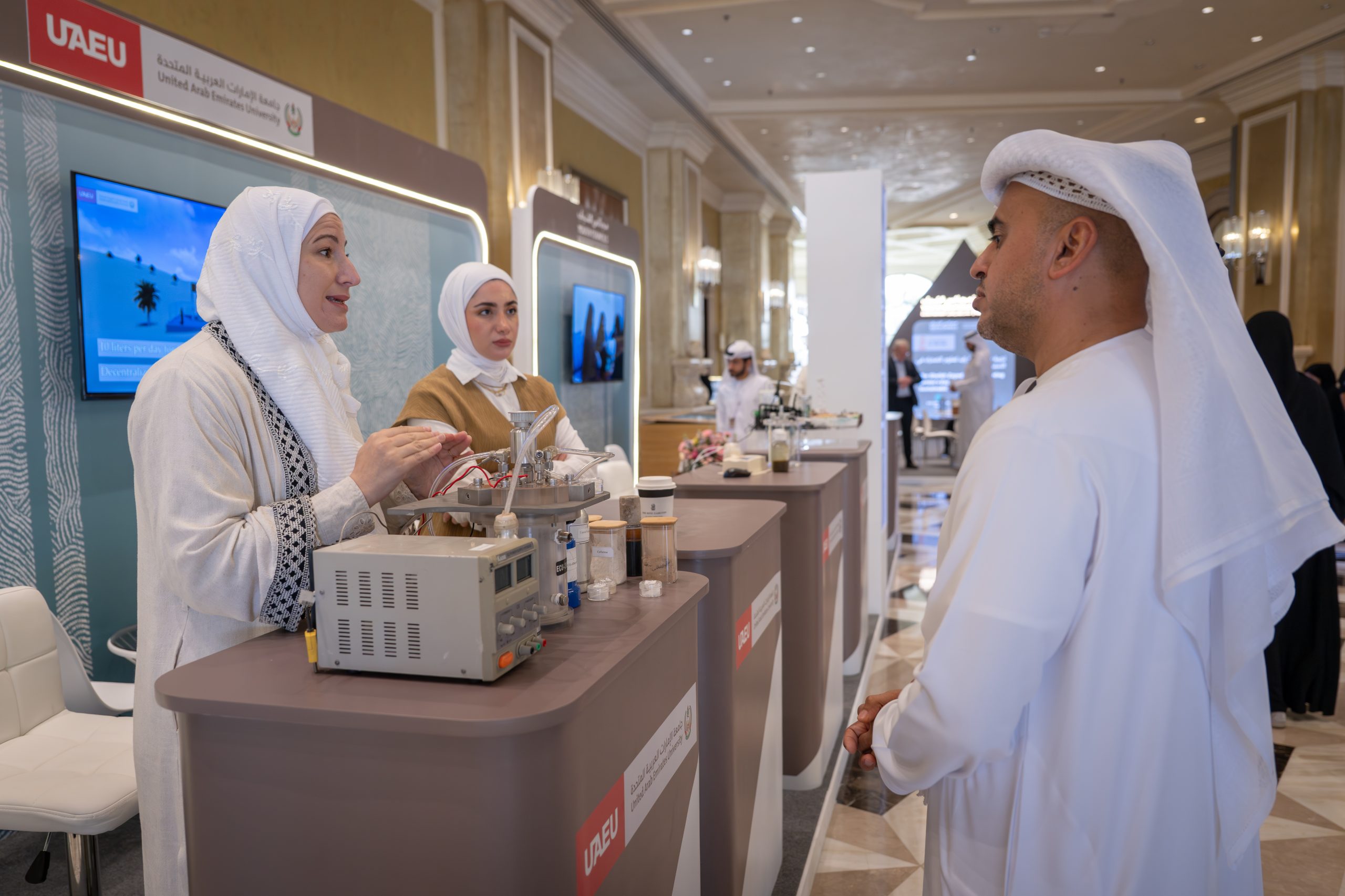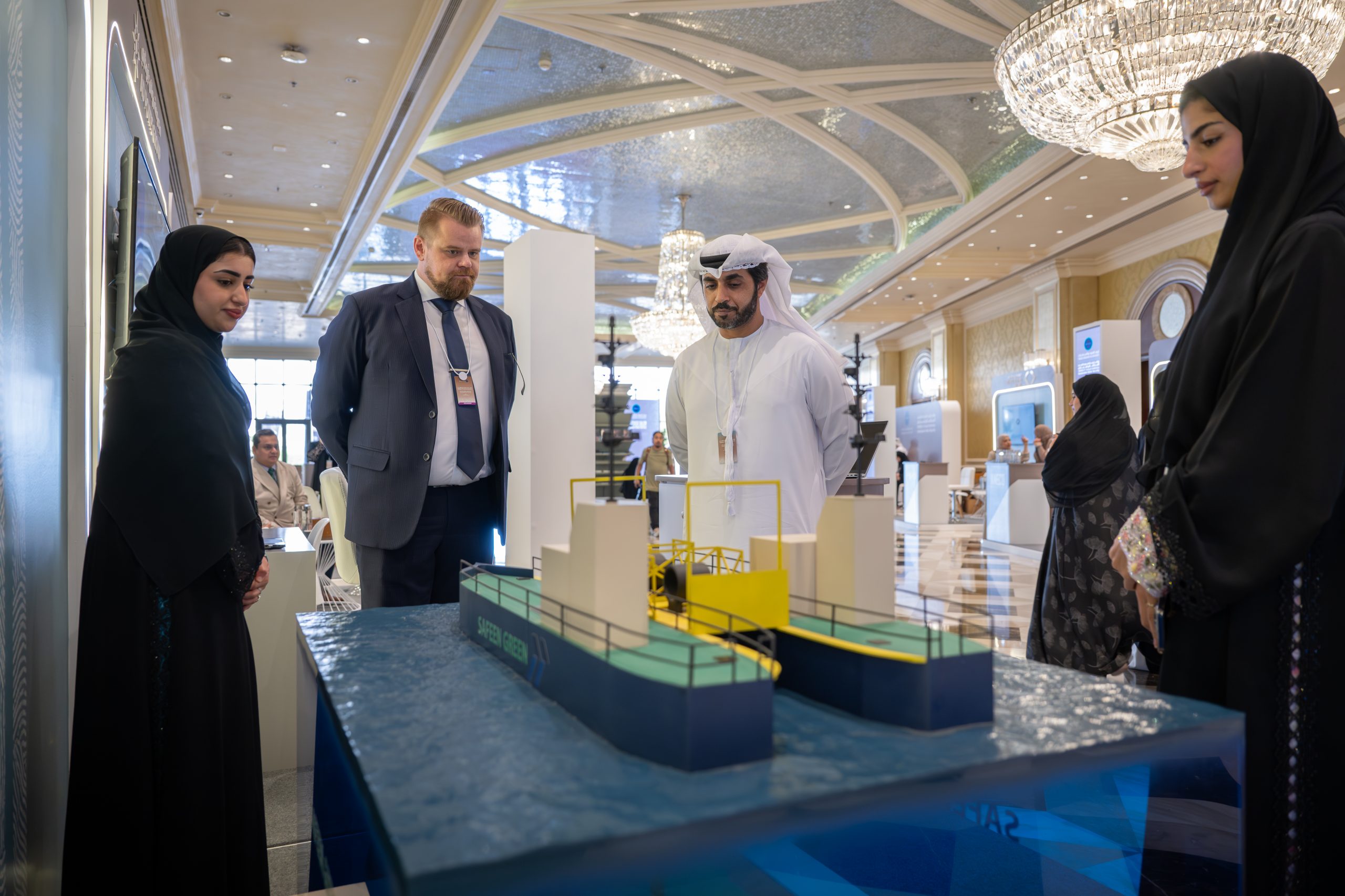Today in Abu Dhabi, the TRENDS Fifth Conference on Sustainable Water Security concluded its proceedings. TRENDS Research & Advisory organized the two-day event with the participation of 33 officials, experts, and researchers from various countries. The conference witnessed high-level attendance, led by H.E. Sheikh Khalifa bin Mohammed bin Khalid Al Nahyan, Advisor at the Presidential Court and Chairman of the Wajeb Volunteer Association, alongside H.E. Ali Saeed Al-Neyadi, Chairman of the National Emergency Crisis and Disaster Management Authority, H.E. Abdullah bin Sultan Al-Nuaimi, Minister of Justice, and H.E. Chancellor Dr. Hamad Saif Al-Shamsi, Attorney General of the UAE. The conference also welcomed several senior officials, undersecretaries of ministries, editors-in-chief of Emirates News Agency and national newspapers, representatives of sponsoring companies, and a broad audience of researchers, students, and stakeholders.

Recommendations
Participants agreed on a set of recommendations forming a roadmap for sustainable water security globally and regionally. These included:
- Enhancing innovative financing through green bonds, blended finance, and public–private partnership mechanisms is necessary to accelerate investment in water infrastructure, while ensuring solutions reach the most vulnerable communities.
- Accelerating technological innovation in desalination, treatment, remote sensing, digital twins, and artificial intelligence to enable early crisis prediction and the development of widely applicable solutions.
- Redefining water as an element of comprehensive security—not merely an environmental issue, but an entry point to achieving peace, economic stability, food security, and long-term climate adaptation.
- Strengthening transboundary cooperation through adaptive governance frameworks, establishing institutional platforms such as joint committees and permanent monitoring mechanisms.
- Adopting forward-looking strategies to transform major rivers from tension hotspots into integration and development engines.
- Applying cross-disciplinary and cross-sectoral approaches to develop long-term solutions.
- Embedding principles of justice and equity in water-sharing to avoid power imbalances between states.

The conference also recommended empowering multilateral partnerships among governments, international agencies, and think tanks to transform research knowledge into practical policies and to integrate water security into climate, peace, and sustainable development agendas. It called for expanding access to international financing dedicated to innovative and sustainable water projects, strengthening the resilience of fragile states against water scarcity, and raising community awareness of the existential importance of water, drawing on the “Rule of Three”: humans cannot survive more than three minutes without air, three days without water, or three weeks without food—making water the most vital resource in times of major crises.

Panel Four
The conference resumed with Panel 4, titled “The role of finance and investment in transforming water systems.” Moderated by Latifa Ibrahim Al-Jneibi, a TRENDS Research and Advisory researcher, the panel discussed water sector investment mechanisms as a fundamental lever for achieving water security.
Robert C. Brears, founder of Our Future Water in New Zealand, stressed the importance of adopting innovative financial tools such as green bonds and private-sector partnerships to accelerate water project funding. Vijay Bains, Chief Sustainability Officer at Emirates NBD, emphasized integrating water risks and environmental, social, and governance (ESG) standards into banking decisions to ensure investment sustainability.
Ahmed Al-Kalbani, Regional Director for Africa at the Abu Dhabi Fund for Development, presented the fund’s experience in financing water projects in developing countries through blended finance mechanisms to attract private-sector involvement. Benjamin Davies, economist and Director of TRENDS’ South Africa office, highlighted that the absence of clear water-use rights systems in Africa limits investment, calling for legislative reform to enable farmers to invest in modern irrigation technologies.

Panel Five
Panel 5, moderated by Noor Saif Al-Mazrouei, researcher and Head of the AI Program at TRENDS, was titled “Technology and AI-driven approaches to future water sustainability & security”. It explored the latest scientific and technological developments contributing to water sustainability.
Professor Saeed Al-Hassan Al-Khazraji, founder of Manhat company, presented innovative solar-powered desalination technologies that eliminate the need for conventional plants, thereby reducing costs and emissions. Professor Philip Hart from the Technology Innovation Institute noted that AI can improve desalination and treatment efficiency but cautioned against excessive optimism and reliance on systems without careful regulation.
Alya Al-Mazrouei, Director of the UAE Research Program for Rain Enhancement Science, stressed the importance of developing applied research that combines AI with atmospheric technologies to secure water sustainability. Dr. Hosni Ghedira, from Mohamed bin Zayed University of Artificial Intelligence, showcased AI applications in forecasting water crises, enabling the design of multiple scenarios to support decision-makers. Dr. Khalid Al-Ghafli, from UAE University, explained how digital twins and satellite data open new horizons for understanding and accurately monitoring groundwater dynamics.

Panel Six
The final panel addressed “Resilience and adaptive capacity in national water systems: Global case studies on mitigating water risk”. Moderated by Stephen Scalet, Scientific Advisor at TRENDS Global Sector, it focused on successful international experiences addressing water scarcity and resource pressures.
Professor Asit Biswas emphasized that the world does not suffer from a shortage of water resources but rather from poor management, calling for comprehensive reforms in water governance patterns.
Dr. Ayman Ayad, Water & Social Infrastructure Programme Manager at the EU Delegation in Egypt, called for a shift from scattered small projects to financeable regional investment packages supported by basin-wide cooperation. Dr. Hazim El-Naser, former Jordanian Minister of Water and Irrigation, underscored the importance of establishing national high-level groups to coordinate water policies and investing in large-scale desalination and recycling projects.
Mouza Al-Marzooqi, researcher and Head of the Economic Studies Department at TRENDS, presented an analytical perspective linking climate change to the geopolitical drivers of water security in the Middle East and North Africa, stressing that water has become an integral part of regional security dynamics.

Conclusion
The conference concluded by affirming that water is an existential issue and a shared responsibility. It stressed that water cooperation can transform from a source of conflict into a driver of regional integration, peace, and development if grounded in principles of justice and equity. It underlined that investment in water is an investment in security, stability, and prosperity for future generations.





